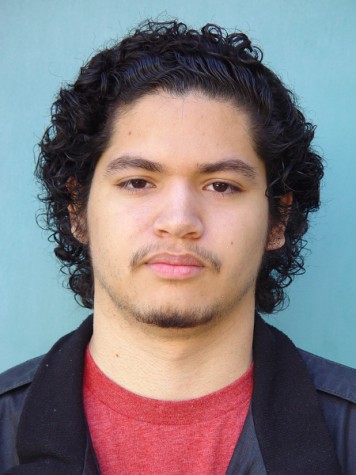Former GCC Physics Professor Paul Kazarian has renewed his work permit after being terminated from the college on Oct. 20, 2009, on the grounds that his U.S. Immigration Services work permit had expired.
The case was first heard in Pasadena back on Dec. 9, 2008 with the decision filed in September 2009. The Administrative Appeals Office found that Kazarian failed to establish three types of evidence of the necessary criteria for an “extraordinary ability” visa and dismissed the appeal. However, he would have been an eligible candidate for an “exceptional ability” visa.
Extraordinary ability, as defined by the Immigration Service, is “a level of expertise indicating that the individual is one of that small percentage who have risen to the very top of their field of endeavor.”
This year, on March 4, Judge D.W. Nelson of the Ninth Circuit Court said that the immigration services had unlawfully imposed extra-regulatory requirements on a petition for a worker of “extraordinary ability.”
In the case of Kazarian, he was denied an employment-based visa because he did not demonstrate “the research community’s reactions to his [scholarly] publications.” It is a subjective requirement with no justification in the law. This case revealed that the U.S. Citizenship and Immigration Services (USCIS) must follow the law and provide a reasonable and fair process, which apparently, it wasn’t.
The Administrative Appeals Office believes that it was likely the error of an ineffective lawyer that led Kazarian to apply for the wrong visa in the first place.
Immigration lawyer Craig Fong of Los Angeles, an expert in these types of cases but was not directly involved in this case, said that this case “is a vindication of the rule of law that the USCIS cannot simply make up the rules as it goes along, lawlessly flying by the seat of its administrative pants.”
Kazarian had his work permit renewed for two years and is currently seeking tenure at Glendale College. He said that he has submitted his work permit during spring break and is waiting for a response.
Mary Mirch, interim vice president of instruction, declined to comment on whether Kazarian would be reinstated.
Between 2000 and 2004, Kazarian’s work at GCC was on a volunteer basis until he got his work permit at which time he became adjunct instructor. Then in the late summer of 2008, he was offered a full-time tenure track position as an instructor of physics by the district starting fall 2008.
Kazarian believes that his case will be used as a precedent for other cases down the line and that it should help him be reinstated.
Fong said that “the real problem is the way that the U.S. Citizenship and Immigration Services uses its judgment, as if they know anything about physics [or the profession in question] and discretion in an arbitrary and capricious manner. The result is that people’s lives are ruined.”
The denial of a work permit has affected hundreds of people. There are many foreign students who wish to get teaching positions in the future and the outcome of this case may benefit them.
This is not an isolated incident. The policies and practices of immigration services have been challenged before.
“Immigration law is complicated enough without the immigration agency imposing additional requirements and burdens of proof that aren’t in the statute or regulations and that ultimately undermine the goal of attracting the best and brightest to our shores,” said Benjamin Johnson, executive director of the American Immigration Council.
Kazarian said that he would like to teach again at Glendale. He has served as a math, physics and programming tutor, an adjunct physics and mathematics instructor and was a speaker for the Science Lecture Series.
It was on Dec. 31, 2003 that Kazarian filed the application for his employment-based immigrant visa for aliens with “extraordinary ability” as a theoretical physicist. In August 2005, immigration decided not to renew his work permit.
Kazarian is currently a volunteer researcher at Caltech, working on the Laser Interferometer Gravitational Wave Observatory (LIGO) Project. For more information on the Caltech LIGO project, visit: http://www.ligo.caltech.edu.
Kazarian can be reached at [email protected].

